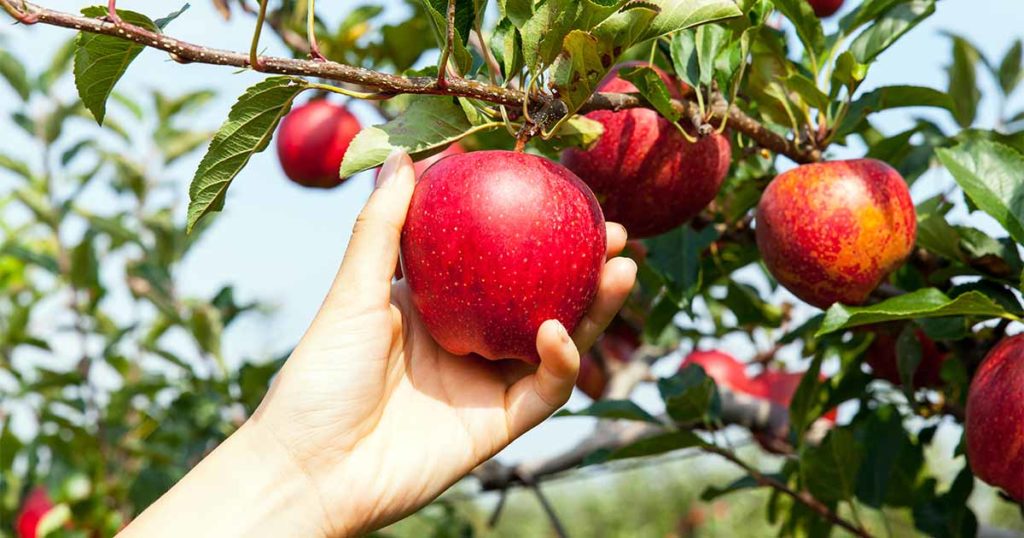“But when he saw many of the Pharisees and Sadducees coming to his baptism, he said to them ‘You brood of vipers! Who warned you to flee from the wrath to come? Bear fruit in keeping with repentance. And do not presume to say to yourselves, “We have Abraham as our father,” for I tell you, God is able from these stones to raise up children for Abraham. Even now the axe is laid to the root of the trees. Every tree therefore that does not bear good fruit is cut down and thrown into the fire.'” (Matthew 3:7-10)

Salman Rushdie, in his book “The Satanic Verses”, wrote: “From the beginning men used God to justify the unjustifiable.” Unfortunately, this has been proven true over the eons and still rings true even today. That is why it is all the more important that we understand the fruit of repentance. Without repentance and adherence to God’s word, our religious observances and declarations are impotent. If we blindly follow only the letter of the law, we do good, but we become legalistic and judgmental. If we blindly follow only the spirit of the law, we quickly fall into the trap of moral compromise. We must strike a balance, or else we become nothing more than the blind leading the blind through the dark alleys and passageways of the world.
The Pharisees and Sadducees were the religious leaders of Israel in the time of John the Baptist and Jesus. They were known for harsh disagreements over doctrines, but more importantly they were known for their harsh treatment of the people by keeping them shackled to an impossible moral standard that exceeded even the dictates of God Himself. It became so rigid that they began to make up rules about the Sabbath that God Himself never intended. For example, the prohibition of women to even look into a mirror on the Sabbath because she might pluck out a gray hair and that would be considered work and vanity. But any other day of the week was fine.
Repentance is the truest fruit of genuine religious faith. And the fruit of repentance is clearly defined as a matter of evidence of a transformed heart by the power of the Holy Spirit: “But if you are led by the Spirit, you are not under the law. Now the works of the flesh are evident: sexual immorality, impurity, sensuality, idolatry, sorcery, enmity, strife, jealousy, fits of anger, rivalries, dissensions, divisions, envy,[d] drunkenness, orgies, and things like these. I warn you, as I warned you before, that those who do[e] such things will not inherit the kingdom of God. But the fruit of the Spirit is love, joy, peace, patience, kindness, goodness, faithfulness, gentleness, self-control; against such things there is no law. And those who belong to Christ Jesus have crucified the flesh with its passions and desires.” (Galatians 5:18-24)
Dan Brown is the controversial write of the “The Da Vinci Code”. I’m not here to debate the conclusions he draws in that book because it is a work of fiction. I do not herald him as some sort of religion expert or history for that matter. But a statement by the character of the camerlengo in his book “Angels and Demons” speaks a startling, earth shaking truth about religion itself:
“Whether or not you believe in God, you must believe this: when we as a species abandon our trust in a power greater than us, we abandon our sense of accountability. Faiths… all faiths… are admonitions that there is something we cannot understand, something to which we are accountable. With faith we are accountable to each other, to ourselves, and to a higher truth. Religion is flawed, but only because man is flawed. The church consists of a brotherhood of imperfect, simple souls wanting only to be a voice of compassion in a world spinning out of control.”
It is our unwillingness to submit to accountability that prevents a true spirit of repentance. Accountability acknowledges that there is a higher, better way. Accountability demands repentance when we stray. Accountability is the plumb tool that we use to measure our lives against the plumb line standard of God’s Word. Not out of a spirit of obligation, but out of a spirit of gratitude and devotion.
If a tree does not bear good fruit, the horticulturalist is left with little choice but to destroy the tree because it is already dead. The only way to know if a tree is good is if it bears the fruit of its design. The same is true for the religionist that does not bear the fruit of the spirit. The fruit is the evidence of repentance and it makes all the difference.